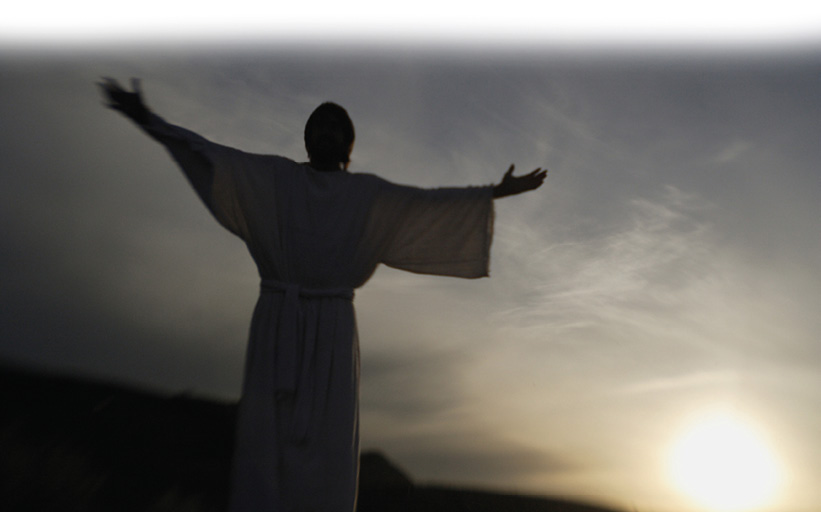

Stephen Hawking, former professor of Applied Mathematics and Theoretical Physics from the University of Cambridge (United Kingdom), in an interview with the newspaper The Guardian, said: “I regard the brain as a computer which will stop working when its components fail. There is no heaven or afterlife for broken down computers: that is a fairy story for people afraid of the dark.”1
Hawking is right. There is no scientific proof regarding the existence of life after death. Any idea on consciousness after death is pure speculation. When the brain ceases to function, a person ceases to exist. A proximate heaven or hell do not exist either. A person’s conscious life ends when death arrives.
However, the Bible teaches that death does not mark the end of existence, but merely a new chapter. In death, people sleep absent of all consciousness to awaken to the reality of the Second Coming of Christ and enjoy eternal life.
Our world is pragmatic and materialistic. People have difficulty accepting the spiritual realities of life. Human beings believe only what they can see and touch. The culture of our time is contradictory and incoherent. How else can we explain someone who believes their destiny depends on celestial bodies and on numbers? Or those who place their faith on crystals or pyramids, and refuse to believe in heaven because they consider it utopian or “an illusion created by religion”?
Do heaven and hell exist? Regarding this matter, there are as many ways of thinking as there are human beings. However, from a biblical point of view heaven does exist, and it will be the dwelling of the redeemed during the Millennium (See the table of page 129). But they will go there only after the Second Coming of Christ.
If a survey were conducted wherein people are asked when they will go to heaven, most would answer “at the time of death.” This is a popular idea. But in the Bible, the hope of heaven is not set on death, but on Christ’s return to earth. No findings support death as a starting point for a better life. The emphasis always rests with the Second Coming.
Notice what Paul says. “For the Lord himself will come down from heaven, with a loud command, with the voice of the archangel and with the trumpet call of God, and the dead in Christ will rise first. After that, we who are still alive and are left will be caught up together with them in the clouds to meet the Lord in the air. And so we will be with the Lord forever” (1 Thess. 4:16, 17).
He analyzes the sequence of events. First, the Lord will descend from heaven. Then the dead in Christ will rise. Finally, those who are alive when Jesus returns will join in the air with those who are raised to meet the Lord. Until that day, the bodies of the righteous who were resurrected on occasion of the advent of Christ will have been in their graves, and the breath of life, unconscious, in God. Nobody is conscious of anything in death.2 Those who are resurrected will be under the impression that time hardly passed from the day they died to the Second Coming. The last memory they hold will be of what they saw prior to dying; and their first sight will be of Jesus returning in glory and majesty.
For those who waited for the coming of Jesus it will be a day to rejoice. Pain and suffering will come to an end. Violence and injustice will end. Jesus returns to earth to put an end to the dismal history of sin.

What will happen to the ungodly? What will be the fate of those who reject Jesus? This is a sensitive subject. Nothing related to eternal death or final destruction is pleasant. However, the matter is as biblical as grace, mercy, and the resurrection of the righteous. Decisions carry consequences, for better or worse. Every action implies a reaction. God does not want death for wicked persons; God desires they repent and return from their evil ways. God is not a God of death, but a God of life. He calls, implores, waits. The Bible is a constant invitation to human beings.
CONTRASTS BETWEEN THE BEGINNING AND THE END OF THE BIBLE
| Genesis 1-4 | Revelation 19-22 |
|
|
|
|
|
|
|
|
|
|
|
|
|
|
|
|
|
|
|
|
|
|
|
|
|
|
|
|
|
|
|
|
|
|
|
|
|
|
|
|
|
|
|
|
|
|
|
|
|
|
|
|
|
|
|
|
|
|
|
|
EVENTS RELATED TO THE MILLENNIUM
REVELATION 20:4; 3:21; 2 TIMOTHY 2:12; 1 CORINTHIANS 6:2, 3
Events at the beginning of the Millennium: Second Coming of Christ
1. Those who died in Christ are resurrected to go to heaven with Him (1 Thess. 4:15-17; John 14:2, 3).
2. Those who rejected Jesus are destroyed (2 Thess. 1:6-10; 2:8; Jer. 25:33; Rev. 19:21).
3. Satan is bound and imprisoned on a desolate earth (Rev. 20:1-3).
Events during the Millennium
1. God’s people remain with Christ in heaven (Rev. 20:4).
2. Satan remains bound and confined to this world (Rev. 20:1-3).
3. Earth is empty and desolate (Jer. 4:23-27).
4. No living beings on earth (Rev. 20:5; Jer. 4:25).
5. Satan, fallen angels, and wicked are judged. Meanwhile the redeemed confirm God’s righteousness (Dan. 7:27; Rev. 20:4; 1 Cor. 6:2, 3; 2 Pet. 2:4; Jude 6).
Events at the end of the Millennium: Jesus returns to this world with the redeemed
1. New Jerusalem descends (Rev. 21:2).
2. God’s enemies resurrected (Rev. 20:5).
3. Satan is released from his prison and sets out to “deceive the nations” and gather them for battle (Rev. 20:7, 8).
4. Satan and enemies of God try to destroy the holy people and the New Jerusalem (Rev. 20:9).
5. Fire devours Satan and enemies of God (Rev. 20:9).
6. Sin is destroyed (Rev. 20:9-10).
7. World is restored to its original, perfect condition (2 Pet. 3:13; Rev. 21:1-3).
When Christ returns, people who rejected Jesus will die in the power and brightness of the Lord’s presence. “I watched as he opened the sixth seal. There was a great earthquake. The sun turned black like sackcloth made of goat hair, the whole moon turned blood red, and the stars in the sky fell to earth, as figs drop from a fig tree when shaken by a strong wind. The heavens receded like a scroll being rolled up, and every mountain and island was removed from its place. Then the kings of the earth, the princes, the generals, the rich, the mighty, and everyone else, both slave and free, hid in caves and among the rocks of the mountains. They called to the mountains and the rocks, ‘fall on us and hide us from the face of him who sits on the throne and from the wrath of the Lamb! For the great day of their wrath has come, and who can withstand it?’” (Rev. 6:12-17).
At first glance, anyone who reads these verses may hold an impression of a God who is evil, vindictive, and delights in the suffering of non-believers. But the truth is different. God is the Fountain of life. He is life itself. To live in communion with Him is to live a whole life, abundant and happy. Those who voluntarily separate from life enter the territory of death, which is not a divine punishment but the natural result of separation from the Fountain of life.

The people described in this passage will run toward the rocks and mountains, begging them to fall on them, giving the reason for their clamor: “Fall on us and hide us from the face of him who sits on the throne and from the wrath of the Lamb! (Rev. 6:16). They will not withstand the presence of life. They always dwelled in the territory of death. They walked, breathed, and performed their usual activities; but did so shrouded in the shadows of death.
They were biologically alive but spiritually dead. Life did not have much meaning; they were distressed; they attempted to solve their problems by their own means. However, nothing was able to fill the void in their hearts. The return of Christ will be an expression of love for them as well. It will mark the end of a life of emptiness and disillusionment.
The resurrected righteous, and those who remained alive until the Second Coming of Jesus, will go to heaven for a period of 1,000 years. This period is known as the Millennium. The word “Millennium” does not appear in the Bible, but it does mentions 1,000 years, during which the righteous will be in heaven with Jesus. During that time, the earth will remain completely desolate and Satan will be imprisoned (symbolically). He will not have anyone to deceive. The godly will be in heaven, and the ungodly will have died from the splendor of Christ’s coming. Those who chose the realm of death were unable to withstand the presence of life.3
The Bible describes the scene during this period of 1,000 years using symbolic language: “I looked at the earth, and it was formless and empty; and at the heavens, and their light was gone. I looked at the mountains, and they were quaking; all the hills were swaying. I looked, and there were no people; every bird in the sky had flown away. I looked, and the fruitful land was a desert; all its towns lay in ruins before the Lord, before his fierce anger. This is what the Lord says: ‘The whole land will be ruined, though I will not destroy it completely’” (Jer. 4:23-27).
Upon speaking of the reward for the righteous, the Bible mentions two periods: First, 1,000 years with Jesus in the heavens, then an eternal existence with Jesus on a renovated earth. The period of 1,000 years in heaven will be, so to speak, a celestial vacation. After those 1,000 years, the redeemed will return to this earth. Only then, the sinners of all time will be raised for eternal death. “When the thousand years are over, Satan will be released from his prison and will go out to deceive the nations in the four corners of the earth—Gog and Magog—and to gather them for battle. In number they are like the sand on the seashore. They marched across the breadth of the earth and surrounded the camp of God’s people, the city he loves. But fire came down from heaven and devoured them. And the devil, who deceived them, was thrown into the lake of burning sulfur, where the beast and the false prophet had been thrown. They will be tormented day and night forever and ever” (Rev. 20:7-10).
Fire will fall from heaven, John declares. This will be hell; it is very different from what people traditionally believe. There is no reason to believe that a loving God would allow human beings to burn forever. The ungodly will die, but not burn forever. At the end of the Millennium, fire will come from heaven and everything will burn until all is consumed. The consequences of such a fire will indeed be eternal; sin will not arise a second time.4
In the letter of Jude, which mentions the fire that consumed Sodom and Gomorrah, we find an explanation to the expression “eternal fire” or “forever and ever” that the Bible uses many times. “In a similar way, Sodom and Gomorrah and the surrounding towns gave themselves up to sexual immorality and perversion. They serve as an example of those who suffer the punishment of eternal fire” (Jude 1:7). Does the expression “eternal fire” used here mean that both cities are still burning? Of course not. The expression “eternal fire” or “forever and ever” is used in the Bible to express a sense of unalterable consequences. No one can imagine a loving God allowing human beings to burn forever in a state on agony.
On the other hand, many people do not accept the idea of the destruction of the wicked. They ask themselves whether God is not being arbitrary about deciding the death of the ungodly. But the Bible teaches that death, more than a divine punishment, is a human option. Jesus said: “Very truly I tell you, whoever hears my word and believes him who sent me has eternal life and will not be judged but has crossed over from death to life… “and come out—those who have done what is good will rise to live, and those who have done what is evil will rise to be condemned” (John 5:24, 29). Wrong decisions bring about disastrous consequences. God does not condemn sinners; they condemn themselves. They have the opportunity to accept salvation and reject it. Later, they suffer the consequences.
If people were aware of the transcendence of their decisions, in light of eternal values and not simply limited to matters of this earth, they would think twice before rejecting the Scriptures. Heaven exists. It is the most certain of realities. It will be the eternal dwelling of the redeemed when Jesus returns.
Those who accept Jesus as Savior do not have to wait until the return of Christ to enjoy the blessings of a better life. They can do so now, on this earth. Jesus said: “Nor will people say, ‘here it is,’ or ‘there it is,’ because the kingdom of God is in your midst’” (Luke 17:21). In what way is the kingdom of God among us now? When people accept Jesus, their view of values receives the light of the biblical teachings. The result is a better quality of life. They quit smoking, drinking, and start eating in an orderly fashion, thereby feeling happier and more fulfilled.
But this better quality of life does not imply an absence of adversities, nor is it the final objective of the gospel. As long as we walk on this earth, we will age, lose loved ones, suffer illnesses, accidents, and will even find ourselves affected by temporal death. This is why a new earth must be established. This is the reason for the promise from heaven for a new earth.
Once the Millennium and the ultimate destruction of the devil and his victims have ended, the eternal city will be established on this earth. Neither root nor branch of sin will remain. It is a divine guarantee.5 The earth, free of the contamination of sin, will be the eternal dwelling of those who made wise decisions.
And what will life be like on the new earth? Human imagination is unable to describe it, nor can words express its reality. “What no eye has seen, what no ear has heard, and what no human mind has conceived—the things God has prepared for those who love him” (1 Cor. 2:9). Notice that all these wonders are “for those who love him.” It is not a reward for anyone who had behaved well, but a gift of love from God to those who love Him. Salvation, eternal life, heaven, and earth will be for those who lived in this world in a relationship of love with the Creator of life. Their experience is not based on religion or doctrinal matters, but on a personal love between them and God. That love led them to seek His Word and practice His teachings.
Let’s observe some characteristics of that wonderful earth. There will be no physical defects or disabilities: “Then will the eyes of the blind be opened and the ears of the deaf unstopped. Then will the lame leap like a deer, and the mute tongue shout for joy” (Is. 35:5, 6). Upon the return of Jesus, a radical change will take place in human nature. Those who died with physical defects will be resurrected in perfect form; and those who are alive will be transformed in an instant.

In the new world there will be neither disappointments nor frustrations. There, people will enjoy the result of their efforts. The redeemed “will build houses and dwell in them; they will plant vineyards and eat their fruit. No longer will they build houses and others live in them, or plant and others eat. For as the days of a tree, so will be the days of my people; my chosen ones will long enjoy the work of their hands” (Is. 65:21, 22).
This is the true new world order: a world without injustice or struggles of any kind, free of social differences or capitalist exploitation; a world where people will see the fruit of their labor and be satiated. This ideal world, dreamed of by millions of people over the ages, will not be the result of human, selfish, arrogant, or finite effort, but of the transformative work of a loving God.
During the early years of the twenty-first century, Osama bin Laden was considered public enemy number one. Hunted, hidden in caves and in mountains like an animal, eventually he was located and the most wanted terrorist in the world paid with his life for the cruelty of his bloodthirsty acts. At times, I have tried to enter in his mind. I have tried to place myself in his situation and imagine his motives. He had lots of money. The inheritance he received was in the millions. What drove him to give up his comforts and the pleasures of a luxurious life that money could have afforded him? Why did he choose to follow the path of terrorism?
Only one explanation exists: the dream of a better world. Bin Laden became lost in the labyrinth of his own ideas regarding a better world. He believed that in order to build an ideal world the established system had to be destroyed. So he resorted to criminal methods. He experienced bitter nights, his dream turned into a horrible nightmare in which thousands of innocent people died viciously.
I believe he was already dead before he was caught by the special task force. His soul was dead. He moved, walked, hid; but the only thing he really hid was his body. Inside, he had been consumed in the flames of existential pain.
A new era in the organization of the planet is about to begin. In that world, injustice and inequality will disappear forever. “But in keeping with his promise we are looking forward to a new heaven and a new earth, where righteousness dwells” (2 Pet. 3:13).
The prophet Isaiah says that there will be peace and harmony in the new world, even among the animals: “The wolf will live with the lamb, the leopard will lie down with the goat, the calf and the lion and the yearling together; and a little child will lead them. The cow will feed with the bear, their young will lie down together, and the lion will eat straw like the ox. The infant will play near the cobra’s den, and the young child will put its hand into the viper’s nest. They will neither harm nor destroy on all my holy mountain, for the earth will be filled with the knowledge of the Lord as the waters cover the sea” (Is. 11:6-9).
Even nature will be transformed: Earth will be a new paradise. “The desert and the parched land will be glad; the wilderness will rejoice and blossom, like the crocus” (Is. 35:1).
As he describes the holy city, John mentions, among other things, a special characteristic: “Then I saw ‘a new heaven and a new earth,’ for the first heaven and the first earth had passed away, and there was no longer any sea.… And I heard a loud voice from the throne saying, ‘Look! God’s dwelling place is now among the people, and he will dwell with them. They will be his people, and God himself will be with them and be their God” (Rev. 21:1, 3).
The apostle Paul asserts the same but expressed it in a different way. In heaven, he says, “we shall see face to face” (1 Cor. 13:12). This is perhaps humanity’s greatest reward. Sin generated separation between God and humanity. After disobeying God, Adam and Eve hid from the presence of their Creator. They tore the heart of our heavenly Father. They rejected His company.
Their behavior lacked coherence. They needed their Father more than ever; but they were afraid of Him. They hid among the trees in the garden. After that day, humanity would live hiding and fleeing from its Creator. In that mad rush, it would fall into the quicksand of uncertainties, doubts, and fears. It would sob in self-imposed solitude as punishment; wander about in the wasteland of a troubled conscience weighed down with pain, such as the daily bread; a bitter, dry bread that never satisfies the hunger of an empty heart. But in the new world, “Look! God’s dwelling place is now among the people, and he will dwell with them. They will be his people, and god himself will be with them and be their God” (Rev. 21:3). The gulf of separation will have reached its end. Humanity will once again delight in fellowship with its Creator, never again to be separated from the fountain of life. As a result, we will live eternally.
Throughout history, many children of God died in the desert sand awaiting the completion of this perfect world. The author of the letter to the Hebrews recounts the history of men and women who dreamed of a better world but, unfortunately, were caught off guard by death. “Who through faith conquered kingdoms, administered justice, and gained what was promised; who shut the mouths of lions, quenched the fury of the flames, and escaped the edge of the sword; whose weakness was turned to strength; and who became powerful in battle and routed foreign armies. Women received back their dead, raised to life again. There were others who were tortured, refusing to be released so that they might gain an even better resurrection. Some faced jeers and flogging, and even chains and imprisonment. They were put to death by stoning; they were sawed in two; they were killed by the sword. They went abut in sheepskins and goatskins, destitute, persecuted and mistreated—the world was not worthy of them. They wandered in deserts and mountains, living in caves and in holes in the ground. These were all commended for their faith, yet none of them received what had been promised” (Heb. 11:33-39).
Those men and women saw the new earth from afar, but they did not enter it. They believed in the promise; but they did not attain it. However, history will not repeat itself. Upon observing the signs of the return of Jesus, we are confident that we will go with Christ to our new eternal home in the near future.
It will be the end of our human pilgrimage. Humanity will have arrived at the end of its journey of pain and suffering that it began after the fall of Adam and Eve. No one else will make them suffer. Death will no longer snatch their loved ones from their arms. They will no longer mourn their losses because of the sinful nature that disturbs them day and night. There will no longer be any unfulfilled promises, nor decisions that only last a week. Behold, everything will be made new.
Would you like to be there?
1. Ian Sample, “Stephen Hawking: ‘There is no heaven; it’s a fairy story’,” The Guardian (UK), May 15, 2011, https://bit.ly/2xdXFGg. Accessed August 14, 2015.
2. Ecclesiastes 12:7.
3. Revelation 20:1-10.
4. Nahum 1:9.
5. Malachi 4:1.
